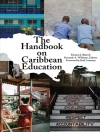American environmental literature has relied heavily on the perspectives of European Americans, often ignoring other groups. In Black on Earth, Kimberly Ruffin expands the reach of ecocriticism by analyzing the ecological experiences, conceptions, and desires seen in African American writing.
Ruffin identifies a theory of “ecological burden and beauty” in which African American authors underscore the ecological burdens of living within human hierarchies in the social order just as they explore the ecological beauty of being a part of the natural order. Blacks were ecological agents before the emergence of American nature writing, argues Ruffin, and their perspectives are critical to understanding the full scope of ecological thought.
Ruffin examines African American ecological insights from the antebellum era to the twenty-first century, considering WPA slave narratives, neo–slave poetry, novels, essays, and documentary films, by such artists as Octavia Butler, Alice Walker, Henry Dumas, Percival Everett, Spike Lee, and Jayne Cortez. Identifying themes of work, slavery, religion, mythology, music, and citizenship, Black on Earth highlights the ways in which African American writers are visionary ecological artists.
Yazar hakkında
KIMBERLY N. RUFFIN is an assistant professor of English at Roosevelt University.












